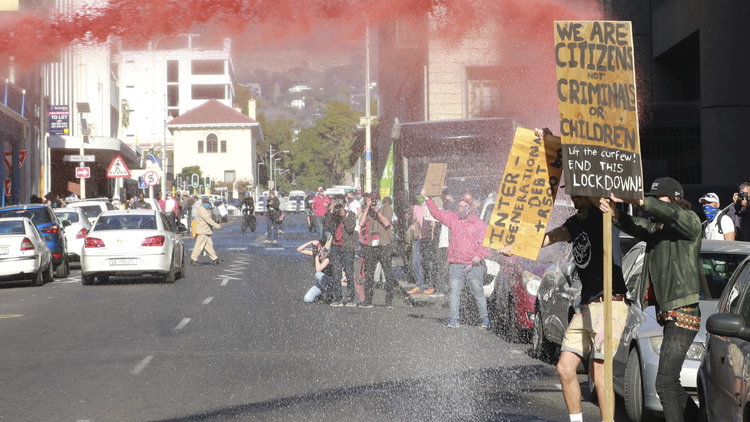VACCINATION STRATEGY
Cry, the beloved country – South Africa’s shambolic vaccination situation

South Africa is currently in its second wave of the Coronavirus, and the country’s healthcare system finds itself under severe strain yet again. The country is also having to battle a new varient which appears to be more contagious.
Whilst the official COVID-19 death rate is 33 000, the country’s excess death rate sits at 71 000, suggesting a far more devastating situation than the offical numbers propose. The official total number of COVID-19 infections sits at 1.2 million. However, Discovery Health, South Africa‘s largest health insurance, estimates that 13 million South Africans have already been infected with Covid-19, out of a population of 60 million. (While the undercounting in South Africa may be concerning, this is far worse in most other African countries which have fewer resources and poorer governance.)
Around the globe, many countries have been planning and setting up vaccine procurement as well as rollout strategies since the middle of 2020. During these months, in contrast, the South African government has been mired in countless corruption scandals around the country’s COVID-19 relief funds. The response to the virus has also been seriously hampered by the government’s general incapacity and irrational policy choices; decades of rewarding loyalty to the ruling party over competence have seen the state become all but completely eroded.
Of course, the above factors also have major implications for South Africa’s approach to the vaccine which has been nothing short of shambolic. In a nutshell, there is no proper plan.
Up until the beginning of January 2021, and after missing a second payment deadlines, the sole arrangement for vaccines South Africa had concluded was with COVAX, and only for 10% of the population. Experts were dumbfounded at this because the global COVAX facility is intended to assist the world’s poorest nations within the next six to nine months, and South Africa is not considered a poor country.
The government has come under scathing criticism from experts who say that it is has ‘dropped the ball‘ on vaccinations. Only due to mounting public pressure did the government eventually scramble to piece together a deal with the Serum Institute of India in the first week of January to procure 1.5 million vaccines for frontline workers. This batch of vaccines may arrive in February.
But there is still no deal in place with any of the high profile vaccine manufacturers such as Pfizer, Moderna or AstraZeneca. The government has sought to rely on the argument that price negotiations are complicated and that many vaccines are prohibitively expensive. However, these arguments have been found wanting: vaccine prices have not needed negiotiations as they have long been known in the public realm, and major manufacturers have dropped their prices significantly so that their vaccines are affordable for middle-income countries such as South Africa. Furthermore, South Africa’s capable private sector has offered government all kinds of assistance (financial and in kind) to help the country’s vaccination efforts. A toxic mix of pro-state and anti-market ideology, pride as well as sheer incompetence may belie the state’s paralysis.
For South Africans, this astonishing lack of action - in the face of major human suffering and death and despite significant offers of assistence - is tragically reminiscent of the country’s AIDS pandemic in the 2000s. Under AIDS-denialist President Thabo Mkebi, it was government policy not to provide life-saving medication to those in need although it was in a position to do so. This led to the loss of hundreds of thousands of lives, and is a dark stain on South Africa’s democratic era.
But the situation may well be even more sinister than it at first appears. The Health Minister has confirmed rumours that South Africa is engaged in vaccine procurement discussions with China and Russia. This has sparked numerous concerns, notably around the quality and efficacy of the vaccines, but also around the opportunities for corruption.
In addition, the government has announced that it intends to be the sole procurer and distributor of all COVID-19 vaccines. Given that the government could not even provide personal protective equipment to frontline workers (a task infintely easier than procuring and rolling out vaccines), this would be catastrophic. Civil society organisations are already gearing up with various court challenges on this front.
Finally, since there is no proper procurement plan in place, it should come as no surprise that there is also no proper rollout plan. Mass inoculation requires months of careful planning as well as the setting up of complex systems and the strategic deployment of resources. None of this foundational work has been done.
Due to South Africa’s failure to act, the most devastating period of the Coronavirus is yet to come.
